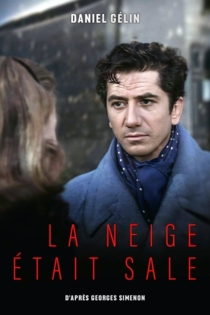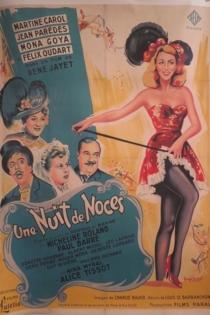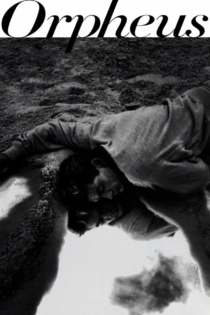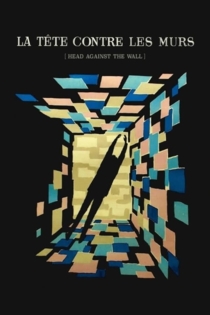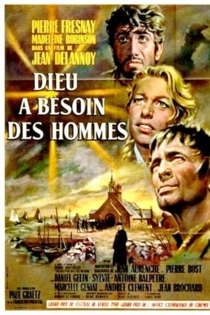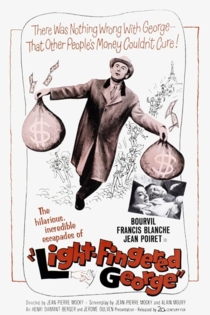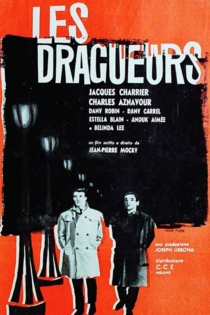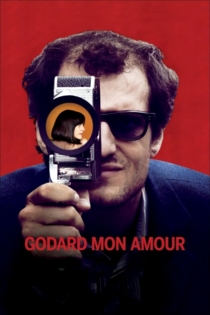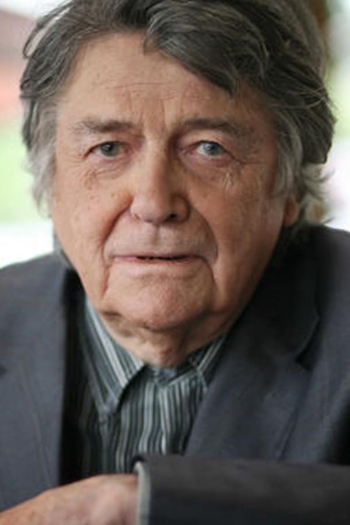
Jean-Pierre Mocky
1929 - 2019Mocky was born in Nice, France to Polish immigrant parents, Jeanne Zylinska and Adam Mokiejewski. His father was Jewish and his mother was Catholic.
Mocky appeared as an actor in the 1955 film Gli Sbandati and in many other movies, including some of those he also directed (Solo, L'albatros, L'Ombre d'une chance, Un Linceul n'a pas de poches). His 1987 film Le Miraculé was entered into the 37th Berlin International Film Festival.
He began as an actor in the cinema and theater. In particular, he played in Jean Dréville's Les Casse-pieds (1948), Jean Cocteau's Orphée (1950) and Bernard Borderie's The Mask of the Gorilla (1957). But it was especially in Italy that he became famous, thanks to his role in I vinti by Michelangelo Antonioni.
After working as an assistant with Luchino Visconti on Senso (1954) and Federico Fellini on La strada (1954), he wrote his first film, La Tête contre les murs (1959) and planned to direct it himself, but the producer preferred to entrust the task to Georges Franju. He went on to direct the following year with Les Dragueurs (1959). Since then, he has never stopped shooting.
As early as the 1960s, he was able to reach a wide audience with crazy comedies such as A Funny Parishioner (1963) and La Grande Lessive (1968). After May 1968, he turned to darker films with Solo (1969), in which he shows a group of young terrorists of the extreme left, then L'Albatros (1971) which shows the corruption of politicians.
In the 1980s, he returned to success with a film denouncing, a year before the drama of Heysel, the excesses of some football fans (À mort l'arbitre, 1984) and a comedy denouncing the hypocrisy around the pilgrimage to Lourdes (Le Miraculé, 1987). In the 1990s and 2000s, his films met with less success, but Mocky continued to shoot with much enthusiasm.
In the beginning, his films were dedicated to the uprising against the restrictions imposed by society. Later, he concentrated on farce, as in Bonsoir where the homeless Alex (Michel Serrault) pretends to be the lover of the lesbian Caroline (Claude Jade) in order to save her inheritance from her homophobic relatives.
Mocky's cinema, often satirical and pamphleteer, is generally inspired by the truth of society. He worked with few resources and filmed very quickly. He worked with Bourvil (A Funny Parishioner, The City of Unspeakable Fear, La Grande Lessive and The Stallion), Fernandel (The Exchange and Life), Michel Simon (The Red Ibis), Michel Serrault (twelve films including Le Miraculé), Francis Blanche (five films including The City of Unspeakable Fear), Jacqueline Maillan (five films), Jean Poiret (eight films) and with the stars Catherine Deneuve (Agent Trouble), Claude Jade (Bonsoir), Jane Birkin (Noir comme le souvenir), Jeanne Moreau (Le Miraculé) and Stéphane Audran (The Seasons of Pleasure).
In 2010, he received the Prix Henri-Langlois for his entire career and the 2013 Alphonse Allais Prize. The International Festival of Film Entrevues in Belfort in 2012 and the Cinémathèque française in 2014 dedicated full retrospectives to him.
He died on 8 August 2019.
Source: Article "Jean-Pierre Mocky" from Wikipedia in English, licensed under CC-BY-SA 3.0.
Éternel espoir
Max-Joly
Nicolas Amato, Michel Ardan
The war will separate the members of the Valon family, two sons Alexandre and Antoine being prisoners, while the youngest Gilbert enters the secret army. Only their sister, Denise, will stay on the farm with her grandfather and grandmother. The Germans invade the free zone.
L'éternel espoir
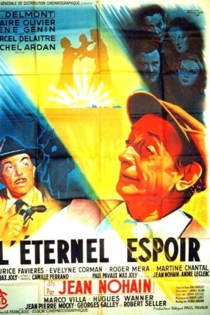
Le Regard de Charles
Marc di Domenico
Ромен Дюри, Marie Montoya
In 1948, French singer Charles Aznavour (1924-2018) receives a Paillard Bolex, his first camera. Until 1982, he will shoot hours of footage, his filmed diary. Wherever he goes, he carries his camera with him. He films his life and lives as he films: places, moments, friends, loves, misfortunes.
Aznavour by Charles
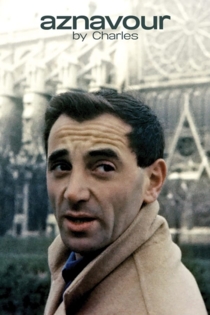
Les compagnons de la marguerite
Jean-Pierre Mocky
Claude Rich, Michel Serrault
Jean-Louis Matouzec works for French National Library as an expert looking after the restoration of old manuscripts.He falsifies marriage certificates as his wife refuses divorce.
Les compagnons de la marguerite
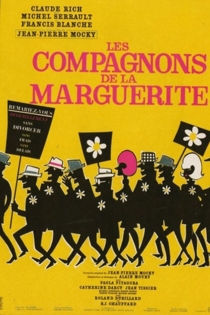
Gli sbandati
Francesco Maselli
Lucia Bosé, Isa Miranda
A group of rich young intellectuals hiding from the war in rural Italy play at being partisans when some disbanded soldiers and some refugees ask them for shelter in their villa. The young and aristocratic Andrea strikes up a friendship with a peasant girl, Lucia. Then the Germans suddenly appear, looking for the real partisans, and the time comes for serious decisions.
Abandoned
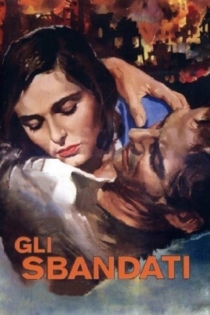
Catherine Deneuve, belle et bien là
Anne Andreu
Catherine Deneuve, Étienne Daho
Catherine Deneuve couldn’t care less about being a celebrity, but fame made her an icon long ago and she occupies a special place in our imagination. The star is not one to let others get too close, but when she gives you her confidence, she keeps her word. If Deneuve’s career covers a half-century of cinema, it also bears witness to the force of a generation that experienced the deepest transformation of mores. This portrait reflects her entirely. The story of a mystery and an adventure.
Catherine Deneuve, belle et bien là
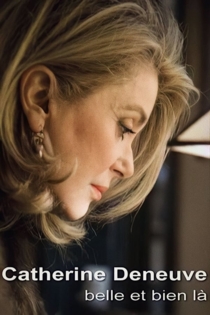
Le rouge est mis
Gilles Grangier
Jean Gabin, Annie Girardot
Louis Bertain is the owner of a Paris garage which is the front for a robbery gang. He and his accomplices are careful to keep up a civic veneer by day, indulging in criminal activities only when "the red light is on" at night. This status quo is upset when one of the gang members becomes convinced that Louis' younger brother is a police informer.
Speaking of Murder
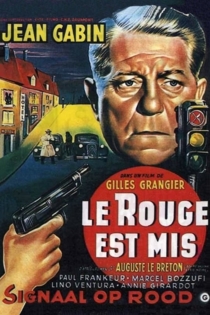
Le Mentor
Jean-Pierre Mocky
Jean-Pierre Mocky, Solène Hebert
The film tells the story of a gentleman of a certain age, a distinguished homeless, who becomes the mentor of a young girl of 20. He will keep out of trouble, especially when she’s about to marry a fool. He will try to change her life by making it more beautiful in the manner of a guardian angel.
Le Mentor

La neige était sale
Luis Saslavsky
Daniel Gélin, Daniel Ivernel
La neige était sale is based on a novel and play by the phenomenally prolific Georges Simenon. Upon learning that his mother was a prostitute, Frank (Daniel Gelin) dejectedly vows that he, too, will live a life of debauchery. Part of his self-degradation program is to kill someone, and since the story takes place during the Nazi occupation of France, he chooses a German officer as his victim. His steady descent into psychosis and depravity becomes his ultimate undoing.
Stain on the Snow
